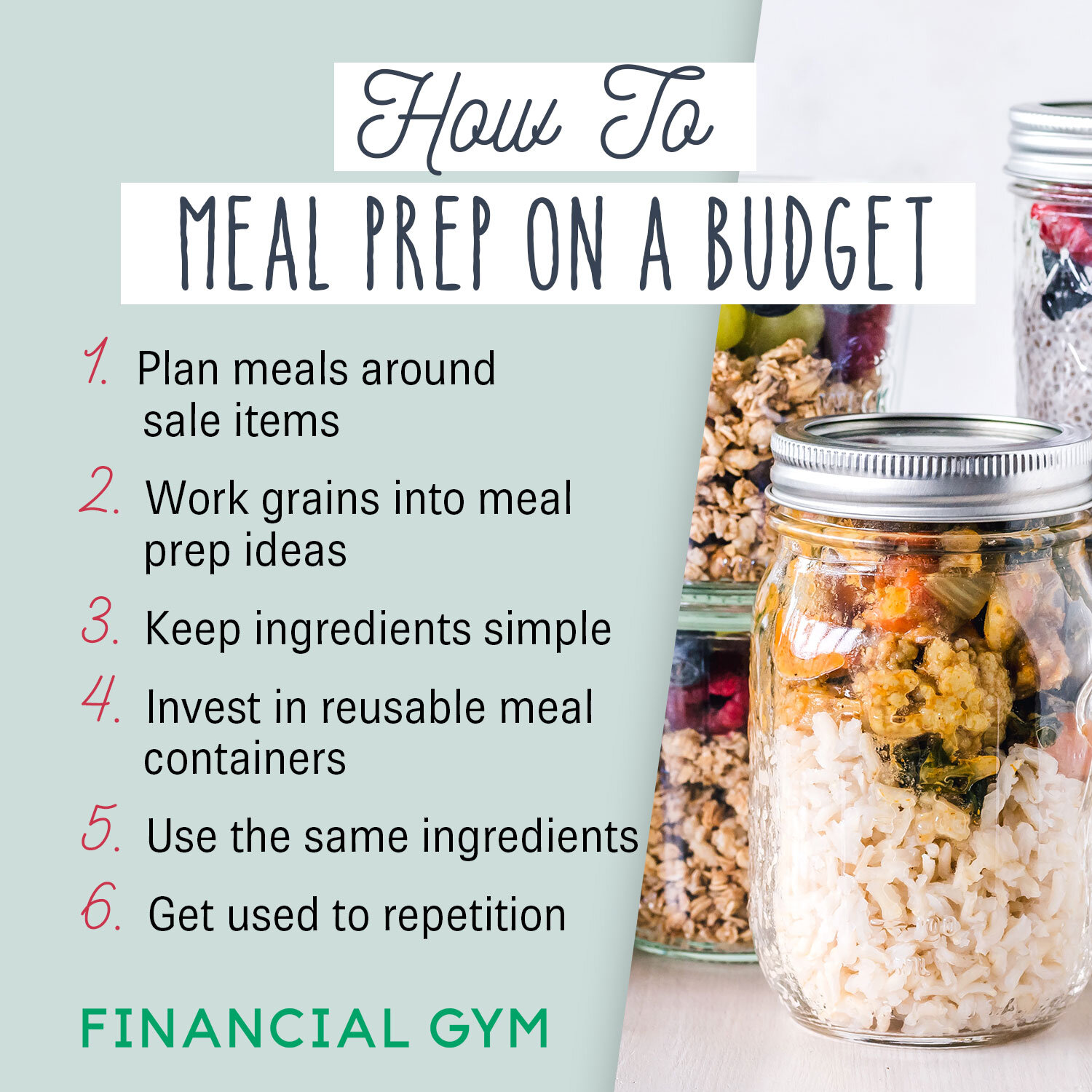How to Meal Prep on a Budget
Cutting back on expensive restaurant meals in place of meal prepping is an effective way to reduce food spending and regain mindful eating habits. The Bureau of Labor Statistics found that households spend an average of $3,365 annually on food outside of the home.
Planning at least one daily meal, whether it's your workweek lunch or dinners, can literally save you thousands of dollars this year. Meal prep on a budget might make you envision a rice-and-beans diet — and although that can be a filling meal prep option — there are many ways to find meal prep ideas for less.
Here are a few tips to start cheap meal prep habits today.
1. Plan meals around sale items
Instead of following your cravings when it comes to meal prep ideas, take a look at your local grocer’s weekly ad. Orienting your meals based on what’s on sale will help you meal prep on a budget.
To take this concept to the next level, shop your own pantry, refrigerator and freezer, before your next big grocery haul. By focusing on the products and ingredients you already have, you’ll force yourself to get creative with your meap prep ideas, and also reduce food waste.
2. Work grains into meal prep ideas
Grains, like brown rice, quinoa, bulgur and barley are great high-fiber bases for any meal. Planning ahead on a whole grain-focused meal can also lower your food costs since grains tend to be cheaper per serving, compared to other ingredients, like meat.
It also adds essential vitamins and minerals into your meals so you’re not only saving money, but also eating healthy.
3. Keep ingredients simple
Cheap meal prep also involves planning meals that don’t require unconventional or hard-to-find ingredients. Although preparing your own homemade lobster rolls can be a mouth-watering idea, chances are that seafood ingredient will cost you a premium. Instead, opt for affordable alternatives, like tuna melts.
One helpful rule of thumb is to limit your meal prep ideas to recipes that require five core ingredients or less. In the tuna melt example, you’ll need a can of tuna, bread, mayonnaise, cheese and spices.
4. Invest in reusable meal containers
Although it might sound counterintuitive to purchase dedicated containers for cheap meal prep, it helps this habit in a couple of ways. First, you can portion batch-cooked meals evenly throughout the week. This way, when you make a recipe that says it serves seven, you can easily set aside seven containers of equal amounts of food, stretching out your savings over more days.
The second advantage of reusable containers is to make it easy to “grab-and-go” your meals. It reduces the likelihood that you’ll forego bringing your meal prep lunch to work, because you’re running late to work or are too lazy to put it together each morning. Pack and portion your meals immediately after cooking so there are no excuses to fall off of the wagon.
5. Use the same ingredients
Between weeks, you may want to switch up your meal prep ideas. Instead of starting an entirely new grocery list from scratch, find recipes that have overlapping base ingredients to help you save money.
For example, let’s say you prepared a quinoa and chicken bowl one week and purchased a 5-pound bag of quinoa. The following week, instead of cooking a meal that requires wild rice, find another recipe that reuses quinoa. You can also substitute similar ingredients (e.g. sub quinoa for rice) with ones you already have in your home.
6. Get used to repetition
This might be the more challenging approach to meal prepping on a budget, but it’s effective. If you’re OK with eating the same meal every day, consider buying ingredients in bulk at Costco. When trying his cheap meal prep method, stick to ingredients that are easy to freeze or can stay fresh in your cupboard so you get the longest shelf life possible.
For example, meal-prepping bulk ingredients of chicken breast, frozen broccoli and a side of brown rice. You can mix-up the flavors of your protein and vegetables based on the dried herbs and spices in your pantry, too.
Although planning your meals in advance takes time and and getting used to, meal prep on a budget is possible. Don’t over-complicate your meals and stick with this financially healthy habit to see savings results throughout the year.

